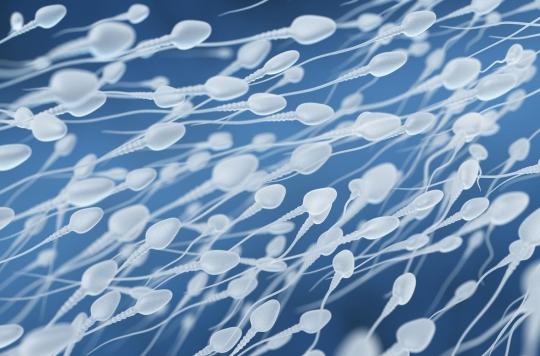While the Government plans to set up a new plan to fight against infertility, a study has just shown that regular exposure to fine particles significantly lowers the quality of sperm.

- In France, 1 in 4 couples go through medically assisted procreation.
- The number of couples facing difficulties in conceiving a child continues to grow in our country: infertility increases by 0.3% per year among women and 0.4% among men.
A study conducted in China shows that air pollution decreases the motility of sperm in thirty-somethings.
340 different cities
“Infertility is becoming an international public health problem, affecting approximately 10% of all couples of childbearing age worldwide”, explain the authors in the preamble to justify their research. “The World Health Organization also estimates that male factors, mainly poor sperm quality, are the cause of 50% of infertility cases”, they add.
To find out if the quality of the air is involved in this phenomenon, the team recruited 33,876 Chinese whose women followed courses of PMA (medically assisted procreation) in the hospital. The participants lived in 340 different cities and were therefore exposed to widely varying levels of air pollution.
Less mobility
After cross-referencing data on the quality of the men’s ejaculate and the levels of air pollution they were exposed to, the researchers found that regular encounters with higher levels of fine particles were significantly associated with lower mobility. of the spermatozoa, therefore to a lower capacity for fertilization of the ovum. On the other hand, no significant association was observed between exposure to fine particles and the number or concentration of spermatozoa.
“These results indicate that air pollution may have a negative effect on sperm motility and underscore the need to reduce fine particulate exposure of men of reproductive age,” conclude the scientists.

















